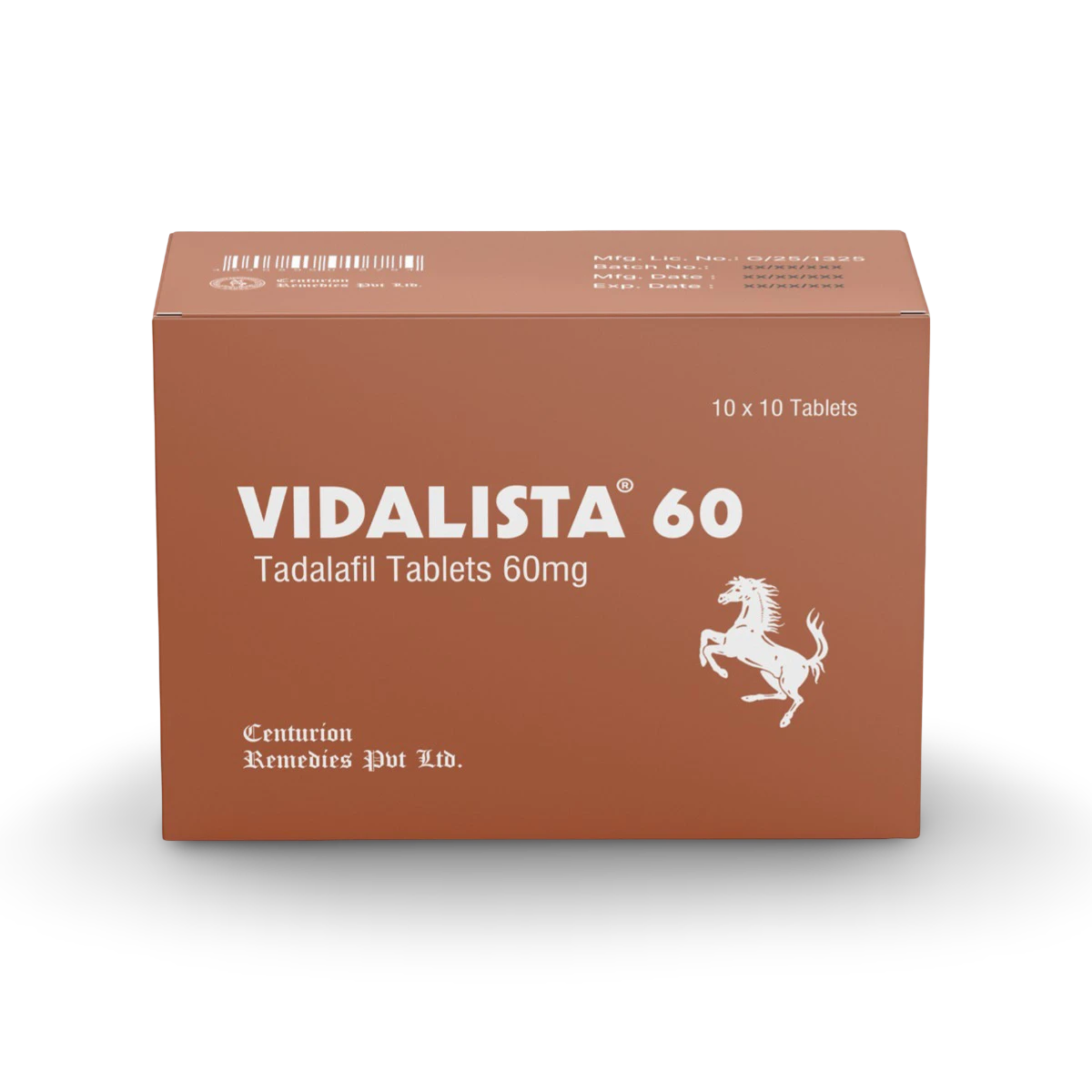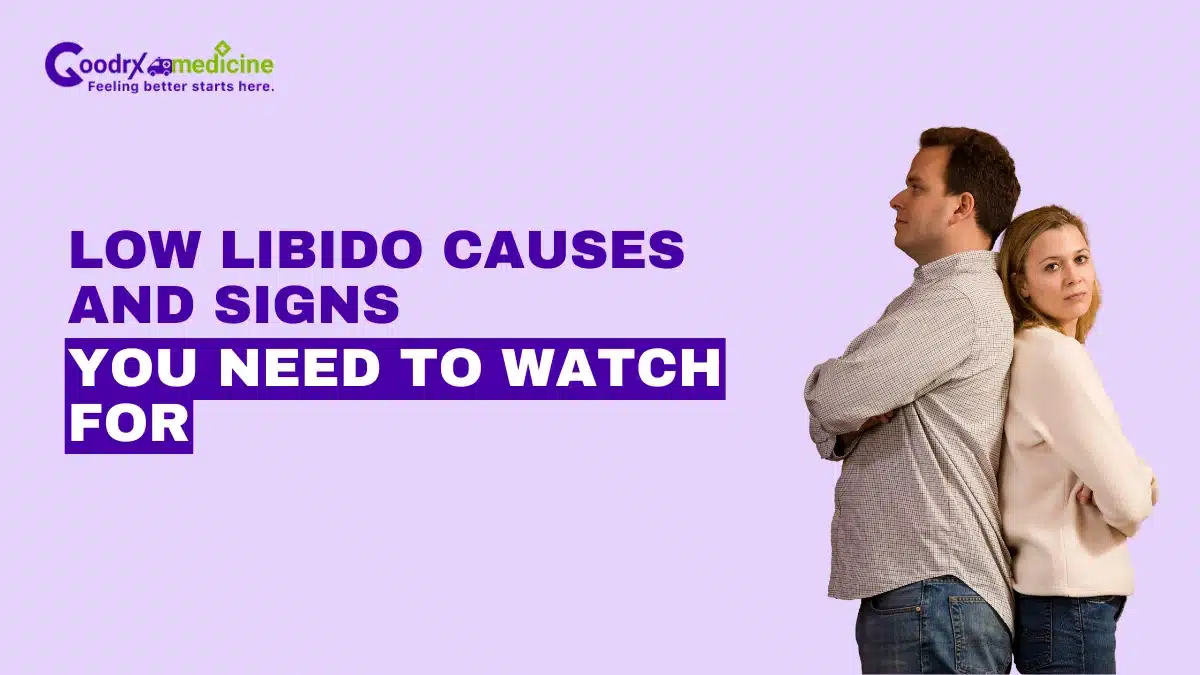Sexual desire is a normal and essential element of general well-being; yet, what happens when it begins to fade? Low libido, or lack of sexual desire, affects millions of men or Assigned Males at Birth (AMABs) and women or Assigned Females at Birth (AFABs) worldwide. Yet, it is frequently misunderstood, disregarded, or dismissed due to humiliation or embarrassment.
Some people notice it gradually, while others experience it as an abrupt shift that disturbs intimacy, relationships, and self-confidence. Contrary to common assumption, low libido is more than simply a bedroom issue; it can be a symptom of deeper physical, emotional, or hormonal abnormalities.
From chronic stress and medical conditions to mental health issues, low libido causes can vary significantly among individuals. This article will highlight what causes low libido in men and women and provide ways to reclaim passion, connection, and a healthy sense of self.
What causes low libido in women and men?
Many physical, psychological, and lifestyle factors can contribute to low libido regardless of gender. These frequently overlap and may interact with one another. Let’s have a look at these causes of low libido in detail.
Save up to 90% on your medicine bills

Cenforce 100 mg

Cenforce 200 mg

Kamagra Oral Jelly Rx 100 mg

Vidalista 60 mg
Physical causes
Several medical conditions, medications, and hormonal abnormalities can lead to low libido in males and females both.
- Medical conditions: Medical health issues, such as Diabetes, heart disease, High Blood Pressure, and long-term pain, can all affect your libido. These conditions can produce fatigue, discomfort, and an overall sense of unwellness, all of which can impair sexual desire.
- Medications: Many common medications might cause reduced libido. These include antidepressants (mainly Selective Serotonin Reuptake Inhibitors), blood pressure medicines (such as Beta-blockers), and Opioids.
- Hormonal imbalances: Hormones influence sexual desire. An underactive thyroid, for example, can cause a low libido in both men and women.
Psychological causes
The following mental health issues can cause a drop in sexual desire in males and females:
- Stress, Anxiety, and Depression: These emotional conditions may significantly affect sexual desire. Chronic stress raises Cortisol levels, which disrupts hormone synthesis and reduces libido. Depression and Anxiety can cause feelings of hopelessness and a general loss of interest or pleasure in previously cherished activities, such as sex.
- Relationship issues: A lack of emotional connection, unsolved conflicts, or communication breakdowns with a partner can significantly reduce sexual desire.
- Past trauma: A history related to sexual trauma or abuse can have an adverse long-term effect on a person’s sexual and intimate relationships.
- Low self-esteem and body image: Feeling miserable about oneself might lead to Performance Anxiety and the urge to avoid sexual relationships.
Lifestyle causes
Besides physical and psychological causes mentioned above, several lifestyle choices can also cause a decline in male and female libido. These factors often include, but are not limited to:
- Lack of sleep: Inadequate, poor sleep quality, and sleep issues, like Obstructive Sleep Apnea (OSA), can reduce sex desire.
- Alcohol and substance abuse: Excessive alcohol intake, as well as the use of recreational or illegal substances like marijuana, can adversely affect sexual desire and function.
- Physical activity: Both little and excessive exercise can harm your libido. A sedentary lifestyle is related to a number of health issues that might impair sex desire, while excessive exercise can upset hormone levels.
Specific causes of low libido in men
In addition to the common causes, men might experience reduced libido due to certain specific reasons, including:
- Low Testosterone: Testosterone is the most essential male sex hormone responsible for sexual desire. Testosterone levels generally fall with age (usually beyond 30), but certain medical disorders or medications can also influence them. Low testosterone levels might affect sexual thoughts and fantasies, and a reduced interest in sex.
- Pornography usage: For some men, excessive pornography usage can result in unrealistic expectations regarding sex and intimacy, resulting in a pseudo-low libido in which they are interested in sex but not in a healthy, intimate setting.
- Sexual performance issues: Sexual problems, such as Erectile Dysfunction (ED) or Premature Ejaculation (PE), may trigger a man to become anxious about sex, leading to avoidance of intimacy and a subsequent drop in desire.
Specific causes of low libido in women
Women also have specific conditions that might lead to a decline in sex drive. These include:
- Menopause and Perimenopause: As Estrogen levels fall during Menopause and Perimenopause, women may feel vaginal dryness and weakening of the tissues of the vagina, which can cause painful intercourse and a loss of desire.
- Pregnancy and breastfeeding: The hormonal changes, physical pain, and fatigue that come with pregnancy and caring for a baby can drastically reduce a woman’s libido.
- Polycystic Ovary Syndrome (PCOS): Health conditions like PCOS can also disrupt hormone levels, affecting mood, energy, and sexual interest.
- Hormonal contraception: Certain types of hormonal birth control, such as the combination pill or implant, might impair a woman’s sexual urge.
- Dyspareunia: Dyspareunia (pain during intercourse) caused vaginal dryness, infections, and disorders such as Endometriosis (tissue grows outside the uterus) might make a woman lose interest in sexual activity.
Managing low libido
Treatment for low libido is based on the root cause and may involve the following strategies:
- Hormone treatment: Hormone replacement therapy may be used to treat hormonal deficits, such as Low Testosterone in males and Low Estrogen in women.
- Medication review: If a medication is the reason, a doctor may be able to modify the dosage or switch to a different one.
- Counseling or therapy: Relationship counseling can assist with conflicts and communication concerns, whereas sex therapy can give guidance and strategies for increasing sexual satisfaction. Individual therapy may also be useful in dealing with stress, Anxiety, or prior trauma.
- Lifestyle changes: Living a healthy lifestyle, including regular exercise, a balanced diet, stress management strategies, and reducing alcohol and tobacco consumption will frequently increase general well-being and sexual desire.
- Addressing physical causes: For women, vaginal lubricants or moisturizers may relieve dryness and uncomfortable intercourse. Men with ED may be given medications, such as Sildenafil or Tadalafil, to overcome symptoms.
Conclusion
Low libido is a complex condition that may affect anyone, regardless of gender. It is commonly caused by a complicated combination of hormonal abnormalities, chronic diseases, psychological stress, medications, and relationship dynamics.
Low testosterone levels in males can have a substantial influence on their sexual drive. For women, hormonal fluctuations due to Menopause, childbirth, or birth control are common low libido causes. Psychological difficulties, including Anxiety, Depression, and poor body image, complicate the situation for both genders.
Recognizing that libido shifts over time is normal, but prolonged low desire is distressing and requires medical attention. Fortunately, low libido may be managed by lifestyle changes, medical assistance, therapy, or greater communication with a partner.
Individuals can regain a fulfilling sex life and increase emotional and physical connection in their relationships by addressing the underlying problems.

Frequently Asked Questions
Can a lack of Vitamin B12 cause decreased libido?
Yes, Vitamin B12 deficiency can result in reduced libido due to exhaustion, impaired nerve function, and mood changes like Depression. These variables affect energy and emotional well-being, both of which are required to maintain sexual desire.
Can persistent intestinal disorders reduce sexual desire?
Yes, persistent digestive problems, such as Irritable Bowel Syndrome (IBS) or acid reflux, can result in fatigue and discomfort. These symptoms raise stress levels and diminish general well-being, which can dramatically limit sexual desire and make intimacy physically or emotionally challenging.
Can environmental pollutants impact the libido?
Yes, long-term exposure to endocrine disruptors such as Bisphenol A (BPA), phthalates, and pesticides can disrupt hormone synthesis, reducing sex desire in both genders by disturbing the normal balance of Estrogen, Testosterone, and other sex-related hormones.
How do autoimmune illnesses affect libido?
Autoimmune disorders, such as Lupus or Rheumatoid Arthritis, may lead to fatigue and inflammation. All these autoimmune disorders can reduce desire in sex and make intimacy uncomfortable or emotionally exhausting.
Can dehydration affect libido?
Yes. Dehydration causes exhaustion, decreased blood flow, and headaches, all of which can adversely impact sexual desire and interest. It also has an effect on women’s vaginal lubrication, making intercourse more uncomfortable.
When referencing outside resources, GoodrxMedicine always provides full citations. To learn more about the measures we use to maintain the quality of our content, please review our Content Information Policy.










